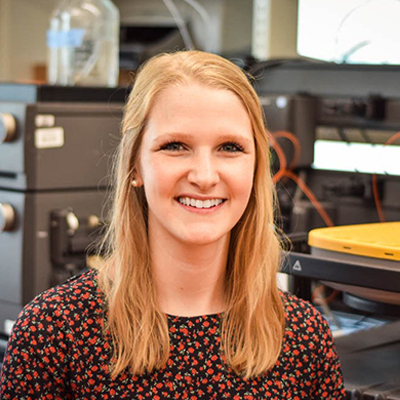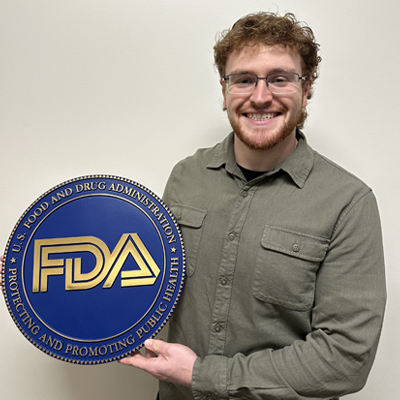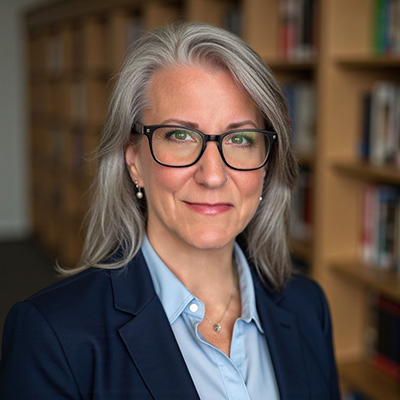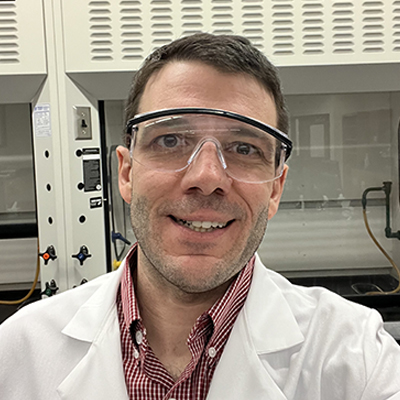The Chemistry Department provides students with a rigorous education and meaningful research opportunities that prepare them for success in graduate studies and careers in the chemical and biochemical sciences.
Our Programs
Department Highlights
- A rigorous and well-balanced curriculum
- Excellence in research with state-of-the-art instruments and high impact publications
- > $5 million in grants to support teaching and research
- Acceptance in competitive graduate/professional schools and industrial jobs
Our Faculty
The Chemistry faculty at SUNY Potsdam lead a dynamic undergraduate research program in fields such as protein biophysics, nanoscience, cancer research, green chemistry, and biosensors, supported by over $5 million in competitive grant funding and national recognition.
Careers
Degrees in Chemistry or Biochemistry can open up a wide range of career opportunities across various industries and fields such as:
- Chemical Technician: Assists chemists and chemical engineers in research and development.
- Quality Control Analyst: Tests products in the pharmaceuticals, food, and materials science industries to ensure quality and safety standards.
- Product Development Scientist: Develops products in the cosmetics, plastics, and food industries.
- Environmental Chemist: Analyzes environmental samples (air, water, soil) to monitor pollution and develop solutions for remediation.
- Pharmaceutical Sales Representative: Communicates the benefits and risks of drugs to doctors and healthcare providers.
- Clinical Laboratory Technician: Conducts experiments, analyzes biological samples, and supports clinical research.
- Research Assistant: Supports research in drug design, development, and testing.
- Forensic Scientist: Analyzes evidence for criminal investigations and works in conjunction with law enforcement agencies.
- Toxicologist: Studies the effects of chemicals, drugs, and other substances on living organisms.
- Medical Lab Technologist: Conducts diagnostic tests and analyzes body fluids and cells in hospitals or labs.
- High School Chemistry Teacher: Teaches chemistry or life sciences at the high school level.
- Science Writer/Communicator: Writes or edits content for media outlets, universities, or science organizations about scientific discoveries and impact on society.
- Laboratory Instructor: Instructs undergraduate or high school students in laboratory skills and safety.
- Environmental Consultant: Advises companies and governments on the environmental impact of projects and how to minimize harm.
- Waste Management Specialist: Develops methods for treating, disposing of, and recycling chemical waste.
- Renewable Energy Analyst: Works on the development of sustainable energy solutions, like solar, wind, or biofuels.
- Patent Examiner: Reviews applications for chemical patents and ensuring new inventions meet legal criteria.
- Environmental Health and Safety Specialist: Ensures compliance with safety, health, and environmental regulations in the pharmaceuticals or chemicals industries.
- FDA/Environmental Protection Agency (EPA) Scientist: Evaluates the safety and efficacy of chemicals, pharmaceuticals, or environmental policies.
- Graduate School/PhD Programs: Pursue advanced degrees in chemistry, biochemistry, or related fields for future jobs in academics, research, or leadership.
- Law School: A chemistry or biochemistry degree can be a strong foundation for jobs in the environmental sector or in patent law.
Medical School or Health Professions: A Chemistry B.A. or Biochemistry B.S. can serve as a foundational degree for medical, dental, pharmacy, or veterinary school.

Employment of biochemists and biophysicists is projected to grow 15 percent from 2021 to 2031, much faster than the average for all occupations. About 4,000 openings for biochemists and biophysicists are projected each year, on average, over the decade.
Our Graduates
From Chemical Reactions To Curing Cancer
Brittany Steimle ’13 began her research career in the Department of Chemistry at SUNY Potsdam. She was a presidential scholar and enjoyed participating in scientific community outreach programs, like “Chemtoberfest,” hosted annually at Stowell Hall. Brittany went on to receive her Ph.D. in Biochemistry from the University at Buffalo, researching metal trafficking across the blood-brain barrier. She now works at Miltenyi Biotec as a Research and Development Scientist, innovating immunotherapies for various cancers.
A Strong Foundation
John Paliakkara, MD '19 earned a Bachelor of Science double-majoring in biochemistry and biology. His time at Potsdam provided a strong foundation for medical school at SUNY Upstate, and his current role as a family medicine intern at SUNY Upstate. Through undergraduate research experiences, he developed critical thinking and problem-solving skills that he carries with him in his research in psychiatry and family medicine. Dr. John is dedicated to providing compassionate care to his patients while continuing to contribute to medical research.
From Upstate NY to California
Just two months after completing his degree in Biochemistry from SUNY Potsdam, Dylan Jock ‘21 applied and received an initial interview with the U.S. Food and Drug Administration. Four months later he was hired and moved to California to start his new role as a biologic Consumer Safety Officer.
From SUNY Potsdam Chemistry to Pioneering Genomic Health
"My degree in Biochemistry '16 at SUNY Potsdam laid a foundation of scientific rigor that propelled me into advanced research and discovery including functional genomics and holistic health. Today, as Dean of The DNA University and a senior clinician at The DNA Company, I educate clients and practitioners on how personalized genomics can transform health outcomes. At The DNA Company, I oversee clinical programs, develop curricula, pursue advanced research, and lead The DNA University, empowering students and professionals with the latest in genomic science." ~ Lara Varden '16
Coming Full Circle
Matthew Hudson ’06 earned his Bachelor of Arts in Chemistry from SUNY Potsdam before completing a Ph.D. in Chemistry at Syracuse University. Following a postdoctoral fellowship and a role as a materials chemist at the National Institute of Standards and Technology, Center for Neutron Research, Dr. Hudson secured a tenure-track professorship position at Stevenson University in Owings Mills, MD. There, he has come full circle, combining his passion for teaching with conducting research alongside undergraduate students.





